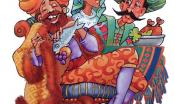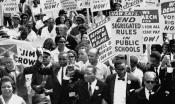text
Literature
What If There Were No Black People?
In this poem, the speaker explores how our culture would be lacking—in people, in music, in movements, in contributions—without contributions of African Americans.
July 3, 2014


